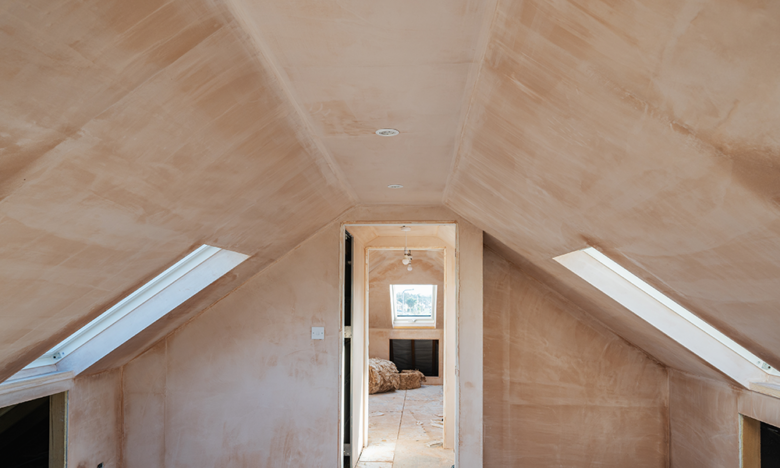
What Value Will a Loft Conversion Add to My Property?
Generally speaking, anything that improves or enhances a property will also add to its value, and a loft conversion is no different. Converting the loft into another bedroom is often cited as one of the top ways to add value and make a home more attractive to buyers. Of course, how much value it adds will depend on several factors, such as the usable space it creates and the location of the property, and conversions don’t come cheap, so always be sure to do your maths before beginning such a big project.
Do loft conversions add value to a house?
The short answer is yes. You will almost certainly add value by adding square footage and creating an extra bedroom and possibly also a bathroom space. This isn’t guaranteed, so there are a few things to consider before starting. For example, if you’re planning to carry out a loft conversion on a three-bed house, be sure to check how much four-beds are going for in your area. If it’s not a considerable amount higher than the current value of your property, it’s essential you don’t overspend on the work, as you may not recoup this when it comes to selling.
As a rough guide, though, adding a loft room can add between 10% and 20% to the value of a home. However, this can vary by region, with London homeowners benefitting more, up to 24.5%, due to the higher cost per square metre and as space is at such a premium in the capital. Properties that add a bedroom and bathroom also benefit more, and larger lofts with entirely usable space will be more appealing than awkward shapes with more limited headroom.
How much does a loft conversion cost?
Again, there’s no definitive answer here, and the final figure will depend on many factors. This includes the size of the loft, the existing roof structure, the type of loft conversion, the style and quality of finish you choose, where you live, and how long the project takes.
The bigger the loft conversion and the higher the quality of the finishes, the more it will cost, but expect the final figure to be around the £80,000-£90,000 mark.
What you need to know about loft conversions
When deciding to embark on a conversion project, there are more things to consider than just the finances. Firstly, you must ensure you have a loft that can be converted. The biggest potential issue is headroom which will depend on how steep your pitched roof is. An architect can advise whether you have the height needed to go ahead, around 2.1m, and may also be able to suggest modifications if space is tight.
The architect can also advise on any planning permission you need. Most projects will be permitted development as long as they meet specific requirements, but this must be checked before work begins. You will, of course, have to meet all building regulations. And, if the work you’re planning will affect the wall that joins your house to your neighbour’s, you’ll need a Party Wall Agreement.
While a loft conversion will undoubtedly add square footage, it’s essential to consider what you’ll lose by converting this space. This will include taking space from the floor below to add a staircase to get to the loft. If you currently use the loft space for storage, think about how to build extra space to store those essentials you’ll need to keep.
Also, be prepared for a potentially long and messy conversion process. Elements of the build, such as breaking through to install the staircase, can have a significant impact on the rest of the property, so be prepared for some damage and consider whether you’d be willing to live in a property that is partly a building site for months at a time.
What if I don’t own the loft space?
It may be that you own a top floor flat as a leaseholder but not the loft space above you, in which case you’d also need to factor in the cost of buying this from the freeholder. In order to ensure you pay a fair price, it’s essential that you get a development/residual valuation which looks at the added value the loft conversion will add, before deducting the cost of the works, fees and an element of profit for the flat owner. It’s then normally a case of paying 50% of the left over amount to the freeholder.
What adds the most value to a house – a loft conversion or an extension?
Overall, a loft conversion will add the most value to a property. This is because you’re adding a whole new room, or rooms, whereas an extension will generally enhance an existing area, such as a kitchen or family room.
If the numbers don’t add up or your loft space isn’t suitable for conversion, don’t panic – there are plenty of other options to consider. For example, if you have a larger garden, you may be able to extend to the rear, possibly even double-storey, or into the side return. You could even turn the garage into that extra bedroom if you have one. If you don’t have the space to extend, consider remodelling; adopting a more open-plan way of living can create bigger living spaces and is an approach many buyers prefer.
The Novello Approach
Before embarking on a significant project, such as a loft conversion, it’s essential to make sure the numbers add up. Having a professional, impartial valuation will ensure you don’t overspend on a loft conversion, and you can gain maximum value from work. We can also provide a valuation for purchasing loft space. With a Novello valuation, you’ll receive an expertly put-together valuation without any fuss and in a timely manner so you can proceed in the confidence that your decision makes sense financially.
If you also require Party Wall Agreements before work can begin, Novello’s highly experienced party wall surveyors can help a complex and fraught process run more smoothly. At Novello, we can prepare service notices, schedules of conditions and party wall awards, working for you, the adjoining owner or both. Either way, we’ll make sure communication is clear, and matters are dealt with expertly and in a timely manner. We can also determine a property’s condition before alterations.

